Laser Tube Cutting Services
High-quality tube laser cutting for metal rectangular, square, and round tubes | Free standard shipping on US and international orders | International prototype pricing includes tariffs
Tube Cutting with Xometry
Laser tube cutting uses a precision laser to cut tube or pipe stock into custom shapes, holes, designs, or channels. The material is rotated in a controllable lathe as the laser cuts, allowing for features like through-holes as small as the wall thickness and channels for easier bending and welding.
Xometry offers laser tube cutting services with instant online pricing, DFM feedback, and fast lead times. We use fiber and CO2 lasers to achieve tight tolerances and cut wall thicknesses up to 1/2”. Upload your 3D CAD to the Xometry Instant Quoting Engine® to get started and configure your quote easily. What you see is what you pay. Your price for prototypes includes tariffs and shipping for standard parcels.
Our team of experts is ready to support your project and ensure a smooth, fast manufacturing experience tailored to your needs.
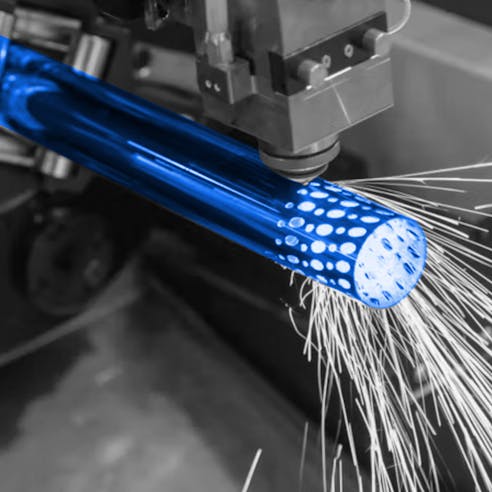
Sizes and Tolerances
Our laser tube cutting service can cut round, square, or rectangular tubes with a variety of sizes and wall thicknesses. Kerf sizes vary based on the specific material, laser type, laser power, and operation parameters but are overall much thinner than traditional cutting methods, reducing material waste.
Review Xometry's Standard Tube Sizes for a comprehensive list of available tube stock.
- Minimum round outer diameter: .500"
- Maximum round outer diameter: 6.000"
- Minimum square or rectangle dimension: .500"
- Maximum square or rectangle dimension: 6.000"
- Minimum wall thickness: .035"
- Maximum wall thickness: .500"
Tolerances are outlined in Xometry's Manufacturing Standards for Tube Cutting
- Cut Type: Normal-to-Surface
- Edge-to-Edge Tolerances: +/- .010” nominal on the inner face of the tube.
- Minimum feature size: Generally no larger than the tube thickness.
Shapes and Materials
Laser tube cutting systems have settings for handling tubes of various shapes and profiles. These include round, square, and rectangular tubes.
The following materials are available for tube cutting.
- Stainless Steel: 304 and 316 Welded and Seamless
- Aluminum 6061 Extruded and Drawn
- Alloy Steel 4130 Seamless
- Steel A513 DOM, HREW, and CREW
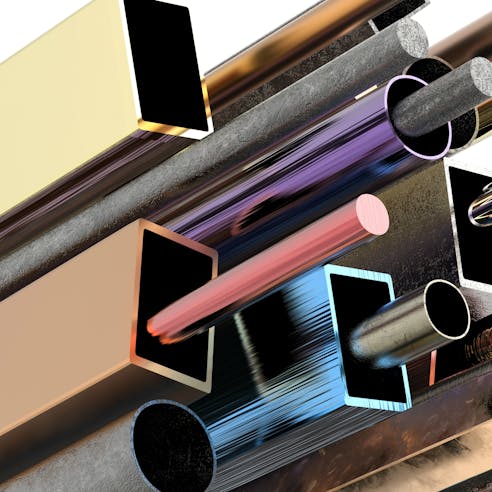
Laser Tube Cutting Material Options
| Material | Round Tube | Rectangular Tube | Square Tube |
|---|---|---|---|
Material Aluminum | Round Tube
| Rectangular Tube
| Square Tube
|
Material Stainless Steel | Round Tube
| Rectangular Tube
| Square Tube
|
Material Alloy Steel | Round Tube
| Rectangular Tube
| Square Tube
|
See our standard tube sizes page for more details.

Ready to start your laser tube cutting quote?
Types of Laser Tube Cutters
The main types of laser tube cutting machines vary based on application and laser type. Combination tube/flat sheet laser cutters are one of the most common machines used for laser tube cutting, but are generally used for smaller jobs and are multipurpose machines (i.e. they can also cut flat sheet parts). Self-contained laser tube cutters are dedicated tube cutting systems that are only specified for tube cutting applications, where they can work with nearly any tube shape (round, rectangular, octagonal, etc.) in long stock lengths (3+ feet or more).
Laser tube cutters can use fiber lasers or CO2 lasers based on the needs of a project. Fiber lasers are compatible with a variety of materials and are generally considered the most versatile laser type, while C02 lasers are designed to be an upgrade from plasma cutters, and are best for niche materials such as titanium due to their enhanced gas coverage over fiber lasers. Both laser types offer comparable power levels. In either case, both cutting processes are well suited for metal fabrication and can eliminate the need for secondary operations.
Lasers are specified based on their wattage, where a higher wattage offers deeper and more sustained cuts. Laser tube cutters are also specified based on the size of material they can handle (max sheet/tube size, max material weight), the assist gas required (nitrogen, CO2, etc,) the motor electrical requirements (3-phase VAC, etc.), repeatability, and other model-specific criteria. Some laser tube cutters come with built-in conveyors or stock handling machinery which automatically feeds the tube into the cutting portion of the system, providing semi-to-fully automated operation.
Advantages and Disadvantages
Here are the advantages of the laser tube cutting process:
- Semi-to-fully automated process with high throughput.
- Low/no material wastage.
- Offers highly complex, clean, and repeatable cuts.
- Works with nearly every metal.
- Most/nearly all tube stock up to 6" is accepted.
The disadvantages or limitations of laser tube cutting include the following:
- Some cut materials may show a small halo discoloration from the backsplash or overspray near the cut edges.
- A small bump of material or a different edge condition may be present at the lead-in and lead-out in a cutting profile.
- The process is generally reserved for thin-walled materials less than 0.500"-1.000" thick.
Why Choose Xometry for Tube Laser Cutting?

Easy to Use
Access the capacity of hundreds of laser tube cutting suppliers through our easy-to-use platform.

Vetted Network
We are ISO 9001:2015, ISO 13485, IATF 16949:2016, and AS9100D certified. Only the top shops that apply to become network suppliers make it through our qualification process.

Expert help
Our team of Solutions Engineers and Process Specialists are available to support you and provide answers to all of your fabrication and manufacturability questions.
Related Capabilities
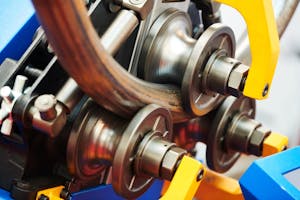
Tube Bending Services
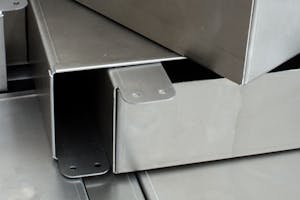
Sheet Metal Fabrication Services
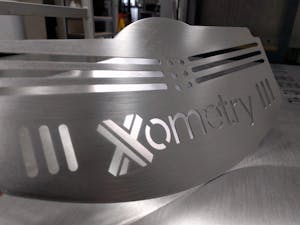
Laser and Sheet Cutting Services
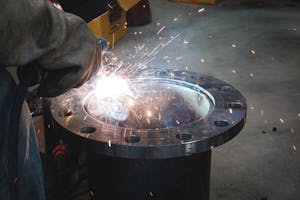
Custom Online Weldment Services by Xometry
